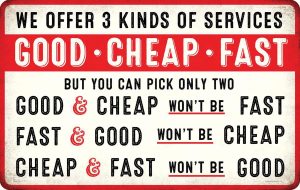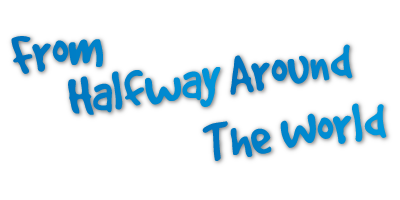How we succeed as an IT partner working from halfway around the world.
Fast, good, cheap. It has become a viral internet meme but a true one. If you’ve ever built a product or worked with a freelance developer or designer you probably understand this. Need quality, but like most of us, you have a tight deadline? It’s not going to be cheap. You pay for hard work and attention to detail. Want it cheap and done tomorrow? I think we all know what the results are going to be. Not sure who said it first but…if you pay peanuts you get squirrels. What if this didn’t have to be true? In fact, it is possible to hire a remote development team with the same quality and speed of working with someone from San Francisco or New York but without the added cost.

Based out of Bulgaria, Futurist Labs is a nearshore studio with a brain. We work on everything from iOS/Android & web development, to product strategy, and startup consulting. Over the past few years, our work has launched numerous startups with an emphasis on going from zero to successful MVP.
People ask us all the time if we have found it difficult to do quality work while being located in Eastern Europe. So is it?
80% of our clients are from the U.S. and we do everything we can to minimize the time difference. We generally start our days earlier or end them a little later so we have a couple hours to overlap. That’s one. Secondly, we try to actually make the time difference an advantage. We deliver things at the end of our day, and the beginning of the day for clients. That way, the client has time to go through everything, give feedback, and then we go back to work. It can often be a more productive work cycle than local teams in the same timezone.
Do you ever face doubts from clients because of our location?
Well…when clients hear that we’re a remote team in Bulgaria, they may think we’re a bunch of devs in a ex-soviet compound who don’t understand English. Which is why we try to get on a call as soon as possible and show we are quite like them. Also our CEO is American and he works on location with us in Bulgaria. Having a native in house bridges the culture gap and takes aways the fear of sending money to ‘Ivan’ in Sofia.
When we get on a first call the client soon realizes that we are all fluent in English and this is NOT our first rodeo. We use the same dev tools as them and follow proper IT development methodologies. This puts clients at ease and they feel comfortable discussing the project/working with us.
After many years of projects delivered we have a diverse portfolio, and we put clients in touch with previous clients where they can ask how it was working with us as a remote team. We are also ranked as one of the top mobile development providers in Bulgaria according to Clutch.io.
Some people in America prefer local teams so they can meet face-to-face. How do you interact with the stakeholders to ensure quality?
We schedule regular calls to sync with stakeholders while minor issues are discussed in Slack. We also give clients daily or weekly status updates so they know what we’ve been working on. Remote work has never been so easy with today’s collaboration tools. We use them all depending on the client’s needs and setup (Trello, Jira, Productive, Slack, Skype, etc.) We are just another member of the team inside these tools; there is no difference.
US companies are now embracing remote work for their full-time employees so why not work with a professional remote team at more attractive pricing? There are a lot of success stories coming from projects that were completed by remote teams and people are starting to feel it is actually a good thing.
How is your studio setup and how does that influence the way you work with clients?
The team 15 people now, but we operate as a unit and placing team members in charge of areas that are their strength. We believe that a good idea can come from anywhere and often bring in members of the team who are not involved in a project to consult and bring an outside perspective.
What is the biggest mistake you see other dev companies make?
Assuming the perspective of the client and the client’s target user is often not done correctly. Too often the technology works great but does not solve the problem in a more efficient way. The whole idea of technology is to make life easier…laziness is the father of invention right? If it does not do this for the end user then that is failure. Build what helps, not what is cool.
What is your advice for a company looking to work with a remote team?
Invest in them and they will invest in you. Don’t expect results without personal investment. We have great partnerships with companies that we have worked with for 2+ years and now they know the names of all the team members, their likes and personalities. We even have our own inside jokes. This all gives meaning to the work and ultimately contributes to quality.
